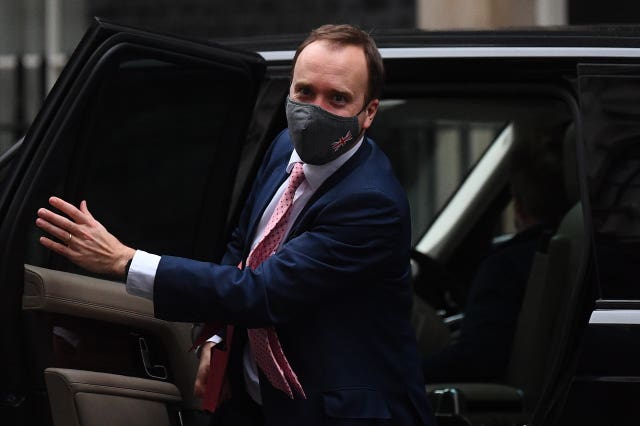NHS facing ‘most dangerous situation anyone can remember’, says health chief
Chris Whitty has said the only way to prevent avoidable deaths is for the public to stay at home wherever possible.

England’s chief medical officer has warned that the NHS is facing the “most dangerous situation” in living memory as the pandemic causes record deaths and hospital admissions.
As the country awaits the ramping-up of coronavirus testing and vaccinations this week, Chris Whitty said the only way to prevent avoidable deaths is for the public to stay at home wherever possible.
“Hospitals are always busy in winter, but the NHS in some parts of the country is currently facing the most dangerous situation anyone can remember,” Prof Whitty wrote in the Sunday Times.
“If the virus continues on this trajectory, hospitals will be in real difficulties, and soon.
“Staff-to-patient ratios — already stretched — will become unacceptable even in intensive care.”
The number of patients with Covid-19 in hospital is at a record high in England, while the official coronavirus death toll for the UK passed 80,000 on Saturday and lab-confirmed cases hit more than three million.
Prof Whitty commended the public for their efforts to stop the spread of Covid-19 and noted the hope offered by various vaccines, but he echoed other experts in saying it would be some weeks before the jabs start to reduce the number of people taken to hospital.
The Department of Health and Social Care (DHSC) has said that expanding the Community Testing Programme to more people without symptoms is “crucial given that around one in three people” who contract Covid-19 are asymptomatic.
DHSC said councils will be encouraged to test those unable to work from home during lockdown – a move likely to include police officers, supermarket workers and taxi drivers.
Lateral flow tests, which can return results in as little as 30 minutes, are at the heart of the programme, the eligibility of which has now been “expanded to cover all 317 local authorities”, DHSC said.
Health Secretary Matt Hancock said targeted asymptomatic testing followed by isolation is “highly effective in breaking chains of transmission”.

But doctor Angela Raffle, a consultant in public health with the University of Bristol Medical School, said increasing lateral flow testing “is very worrying”.
“Any benefit from finding symptomless cases will be outweighed by the many more infectious cases that are missed by these tests,” she said.
“Already outbreaks are known to have occurred because people have been falsely reassured by a negative lateral flow result, leading them to attend work whilst having symptoms.”
Meanwhile, as the vaccine rollout gathers pace, more than half a million over-80s are due to receive invitations this week to sign up to receive a jab.
The first 130,000 invitations were due to arrive over the weekend, as the Government strives to meet its target of offering inoculations to almost 14 million vulnerable people in the UK by mid-February.
Prime Minister Boris Johnson said: “There are deeply challenging weeks ahead, but today signals another significant step forward in the race to protect the public, and defeat the virus.”
Some experts have branded the current lockdown measures not strict enough, in the face of the more transmissible variant which has spread rapidly in many parts of the country.
Susan Michie, a professor of health psychology at University College London who participates in Independent Sage, questioned whether restrictions need to be tighter still.
“We have to get to a situation if we’re going to get on top of this virus and prevent tens of thousands of avoidable deaths which we are looking at over the next few weeks, we absolutely have to get right back to where we were in March, unfortunately,” she told BBC Breakfast.
“Which means that everybody’s at home and you don’t have many people on the streets. But that does need to be accompanied by the Government giving good financial support to everybody, including those people in the gig economy and with precarious jobs, not just those on salaries as happened last time.”





